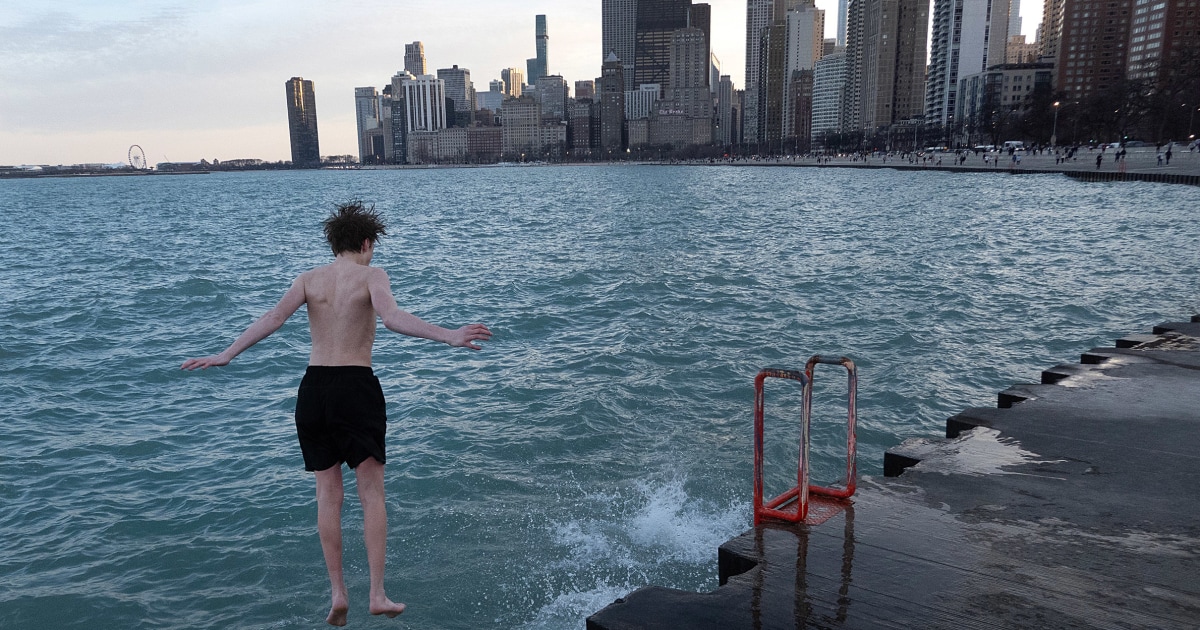
The weather across the US is experiencing a roller coaster of temperatures, with record heat and tornadoes setting in on Monday. On Tuesday, 50 to 80 additional daily record highs could be set from the Great Lakes to the Gulf Coast. The Chicago area is forecasted to reach mid-70s by Wednesday morning after hitting a high of just 55 degrees on Tuesday. Places like Chicago will go from a high in the 70s to wind chills in the teens and single digits by Wednesday morning, while Dallas reached its highest temperature for February at near 90 again on Tuesday.



